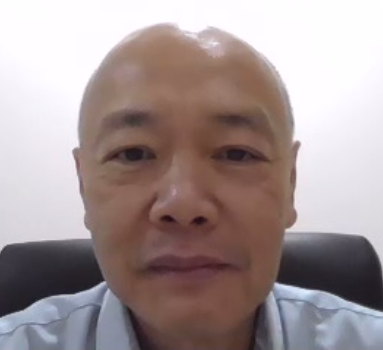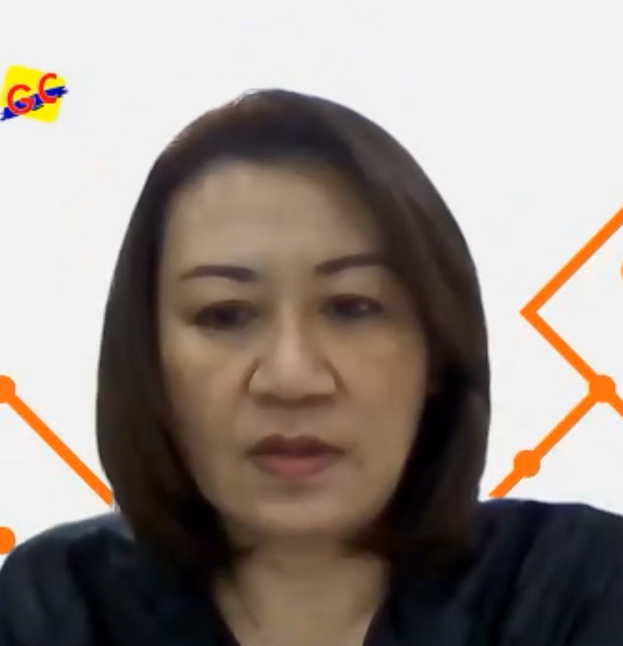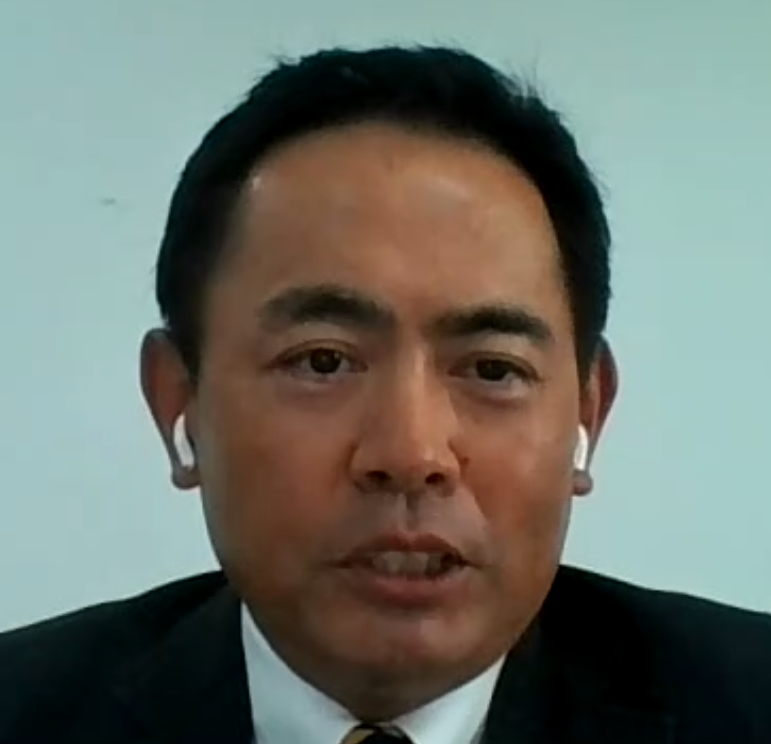Seminar for Promotion of Cold Chain Logistics Standards in Malaysia
- Symposium etc.
- International Activities
- Logistics
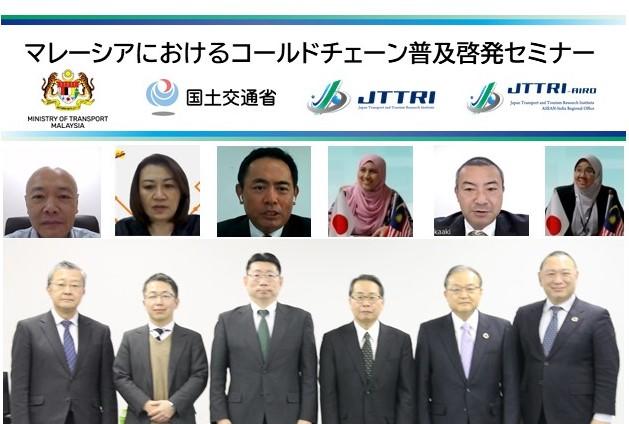

| Organizer | Organizer: Ministry of Land, Infrastructure, Transport and Tourism (MLIT) Ministry of Transport Malaysia (MOT) Japan Transport and Tourism Research Institute (JTTRI) cooperation:Japan Transport and Tourism Research Institute ASEAN-India Regional Office (JTTRI-AIRO) |
|---|---|
| Date / Time | Mon, Feb 07,2022 15:00-17:30 |
Event Summary
Along with steady economic growth in recent years in the ASEAN region and the diversification of food lifestyle, the demand for cold chain logistics is increasing, while health hazards caused by inadequate temperature control and food loss during transportation are becoming issues. In Japan, the Japanese Standards Association (JSA) published a cold chain logistics service standard (JSA-S1004) for the BtoB sector in June 2020, and has been working to promote the standard in the ASEAN region. Against the backdrop of the growing cold chain logistics market, Malaysia has expressed its intention to establish a national standard for cold chain logistics services, and in Malaysia there is a local logistics company working to obtain JSA-S1004 certification. As a result, Malaysia is one of the most advanced countries among ASEAN countries in terms of cold chain logistics services. This seminar was co-hosted by the Ministry of Transport of Malaysia to introduce the initiatives of the Japanese government and Japanese logistics companies in Malaysia in order to foster understanding of the significance of JSA-S1004 among shippers, logistics companies, and certification bodies in Malaysia. In addition, the seminar introduced the "JSA-S1004 Certification Audit Guidelines," which were formulated last year by a study committee of the Japan Transport and Tourism Research Institute (JTTRI) in order to promote the certification system for cold chain logistics services in Malaysia. Furthermore, the Malaysian government made a presentation on the current status and prospects of national standardization of cold chain logistics services in Malaysia, and trends in related measures.Program of the seminar is as the following
| Opening Remarks 1 |
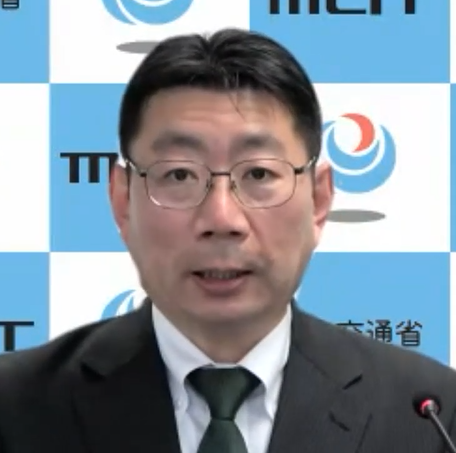
Terada Yoshimichi |
|---|---|
| Opening Remarks 2 |
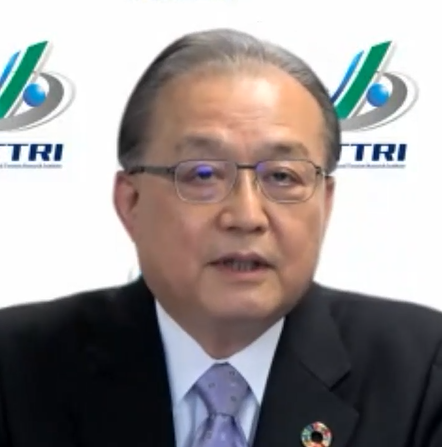
Shukuri Masafumi |
| Keynote Speech |
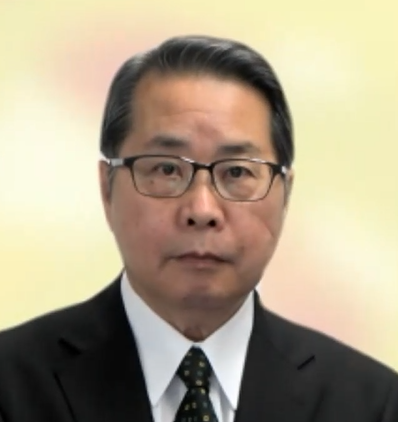
Mori Takayuki |
| Lecture 1 | |
| Lecture 2 |
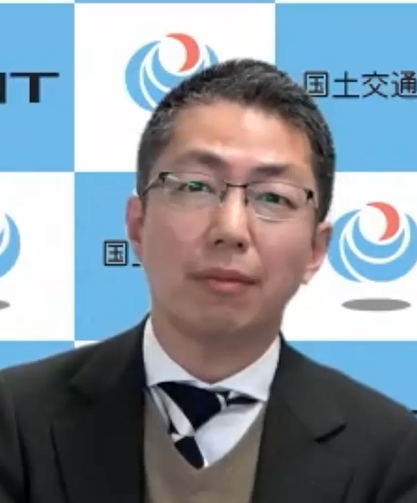 Ohtsubo Hirotoshi Ohtsubo HirotoshiCounsellor for International Logistics, Ministry of Land, Infrastructure, Transport and Tourism, Japan"> "Initiatives to Promote Cold Chain Logistics Standards in Japan" |
| Lecture 3 |
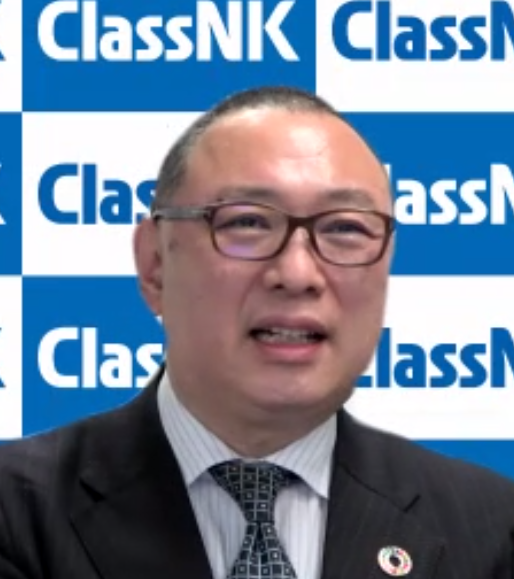 Hirata Junichi Hirata JunichiGeneral manager, Innovation and Sustainability Center, Transportation and Logistics Department, Class NK"> "Initiatives to develop Certification System for Cold Chain Logistics Standards" |
| Lecture 4 |
 Azwana Binti Mohamad@Ahmad Azwana Binti Mohamad@AhmadPrincipal Assistant Secretary, Strategic Planning and International Division, MOT"> "Development of Cold Chain Standard in Malaysia" |
| Question and Answer |
【Moderator】 |
| Closing Remarks |
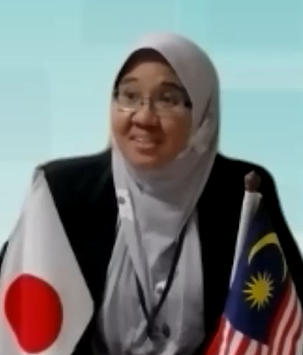
Anis Mardiana Binti Abdullah |
Outline of the seminar
The outline of the lecture and panel discussion is as follows.●Keynote Speech
Mori Takayuki, Professor Emeritus, University of Marketing and Distribution Sciences
・There is a growing need for cold chain in ASEAN countries due to factors including an increase in modern retail trade and a rise in consumer awareness of safe, fresh foods associated with economic development. At the same time, given that 90% of food loss occurs in the logistics phase, development of cold chain in the transportation and storage stage is a necessity.
・The following 4 points can be named as the major causes of food loss.
(1) Lack of recognition/knowledge of frozen/refrigerated foods by businesses (distribution/logistics companies) and consumers
(2) Lack of equipment/machinery for freezing/refrigeration
(3) Absence of distribution infrastructure, including transportation
(4) Issues with electric power supply for freezing/refrigeration
・Creating a cold chain standard and certification improves a country’s food supply chain and is advantageous for clients because they can use it as a basis for determining a logistics company’s level of service.
・Offering opportunities to learn for logistics providers and conducting educational activities for consumers are important measures against food loss. At the government level, in addition to issues with electric power supply and infrastructure, it is also necessary to give tax breaks and incentives to encourage businesses to acquire cold chain standards.
・Japan has the JSA-S1004 standard for refrigerated warehouse operators and transportation operators, but it can be expanded to entities such as the food service industry and retail stores. The cold chain as a whole can be expected to improve through the expansion of JSA-S1004.
・In the next endeavor after JSA-S1004, under Japan’s leadership the ISO Technical Committee, joined by 19 countries including Malaysia and Thailand, is promoting the international standardization of B-to-B cold chain logistics and making a proposal based on JSA-S1004.
● Importance of Promoting Cold Chain Logistics Standards
〇Freddie Lim, CEO, TASCO Yusen Gold Cold Sdn Bhd (TYGC)
〇Nee Phing Tan, CBDO, TASCO Yusen Gold Cold Sdn Bhd (TYGC)
・TASCO is engaged in businesses including transportation and urban development. Four of our 5 subsidiaries are focusing on cold chain logistics. TYGC primarily concentrates on the 3 areas of food cold chain, retail, and drug manufacturing and healthcare. We have 7 logistics centers for cold chain in Malaysia.
・Offering high-quality cold chain logistics services is not limited to ASEAN. JSA-S1004 is an important certification standard and set of guidelines focusing on low-temperature storage and transportation services. It has the following 4 key points.
(1) Ongoing improvements in quality from the operation process to worker knowhow
(2) Increasing awareness of food safety and hygiene, reducing waste, and boosting trustworthiness
(3) Being environmentally responsible by improving transportation efficiency and cutting CO2 emissions to reduce global warming
(4) Business growth
・TYGC is confident that approval of JSA-S1004 will benefit the foods and cold chain logistics industries by setting standard quality practices in the cold chain industry, improving trust and recognition from international industry players, and strengthening trade standards for noncompliant entities, as well as in terms of food safety, security, and quality assurance for all stakeholders. ASEAN governments should consider JSA-S1004 as a prerequisite for logistics sectors offering cold chain storage and transportation services.
・TYGC is being audited by ClassNK as the first cold chain logistics company to receive a JSA-S1004 audit.
・The COVID-19 pandemic has disrupted the global supply chain, and the supply of fresh foods is limited. The cold chain industry is playing an important role in extending shelf life and ensuring quality. The world is facing a food supply crisis due to the pandemic and climate change, and strategic planning is required for food security, including handling the rise in food and fertilizer prices. To mitigate these issues, TYGC recommends the following in Malaysia.
(1) Under the Ministry of Domestic Trade and Consumer Affairs, the Malaysian government should build collection centers for agricultural production equipped with high capacity storage facilities in suitable locations easily accessed by small-scale farmers.
(2) Utilize advanced storage systems to minimize food waste.
(3) Develop regional food banks to offer fresh farm produce.
(4) The government should make the JSA-S1004 standard a condition of food banks and storage operators to ensure food safety and maintain quality.
JSA-S1004 is the first set of cold chain guidelines approved in the ASEAN region. Collaboration and support between government and industry players are essential.
〇Iwahara Koichi, CEO, NL Cold Chain Network (M) Sdn. Bhd. (NLCCN)
・In 2018, NLCCN acquired capital in the Nichirei Logistics Group and is offering cold chain services and halal logistics services in Malaysia as a joint venture with the sovereign wealth fund, Khazanah Nasional.
・The significance of the cold chain is roughly threefold (maintaining quality, bridging the distance between production sites and consumption sites, stabilizing prices and supply). The cold chain is indispensable to our lives, economic activities, and economic growth.
・Issues in maintaining the cold chain are quality of temperature control and optimization of delivery. As a way to resolve quality of temperature control, we introduced measures such as installing LED lights in all areas, thoroughly maintaining facilities, and conducting comprehensive onsite patrols. Also, to optimize delivery, we propose improving loading ratio through consolidation of deliveries to multiple clients to cut costs. Furthermore, for delivery to remote locations and outstations, stationing warehouses in multiple locations, periodically replenishing area warehouses, and placing main product warehouses in areas close to consumption sites makes it possible to shorten order lead time. In addition, combining joint deliveries and multi-frequency deliveries at delivery bases can reduce opportunity loss caused by stock shortages and food loss.
・The conclusion and outlook is as follows.
(1) Construction of an accurate cold chain is necessary to establish safe/secure food and reduce food loss.
(2) As economic growth continues, there will be a need for more advanced services to meet greater demand for quality from clients and value-added services.
(3) The trend will be for shippers and clients to focus resources on their core businesses and outsource logistics while improving their productivity and management efficiency.
(4) There is a need for guidelines that develop qualifications and certifications proving safe/secure quality and technology.
(5) There will be a need to partner with logistics operators with specialized knowledge and expertise that can use current logistics analysis and new technologies to propose improvements and globally expand.
(6) A safe and secure cold chain should be built based on a long-term perspective.
●Initiatives to Promote Cold Chain Logistics Standards in Japan
Ohtsubo Hirotoshi, Counsellor for International Logistics, Ministry of Land, Infrastructure, Transport and Tourism
・Cold chain logistics is one of the important joint projects within the ASEAN-Japan Transport Partnership Framework. The 2018 ASEAN Transport Ministers Meeting (ATM) drew up the Guidelines on Cold Chain Logistics that summarized specific matters of concern when storing and transporting foods at low temperatures. Based on these guidelines, the Japanese Standards Association (JSA) created the JSA-S1004 standard in regard to cold chain logistics services in 2020. The JTTRI created JSA-S1004 Certification Audit Guidelines in 2021, and in the same year the ASEAN-Japan Transport Ministers Meeting (ATM-J) approved it as a shared set of guidelines for Japan and ASEAN. Currently, the Japanese government is working on promoting the JSA-S1004 and Certification Audit Guidelines in ASEAN countries, in addition to making JSA-S1004 an international standard.
・In Malaysia, the cold chain logistics market is rapidly expanding, and contemplation of drawing up a national standard for cold chain logistics services is also moving ahead. With the aim of internationally promoting cold chain logistics, Japan has positioned Malaysia as a priority nation and is drawing up an action plan to move forward specific initiatives in partnership with the Malaysian government.
The 4 pillars and progress of the action plan are as follows.
(1) Educating shippers and consumers
Through means such as seminars and social media, we are making it known that this standard not only guarantees high-quality services, but also contributes to the resolution of societal issues such as food waste and health damage. We plan to deepen understanding of its utility through local demonstration projects.
(2) Encouraging active participation by the Malaysian government
We are moving forward with cooperation at the government level, including creating a national standard through government dialogue and exchanging ideas about promoting it to logistics operators.
(3) Developing a certification system for the standard
We are encouraging promotion of the guidelines through actions such as seminars. Discussions are also being held between both countries to ensure consistency and compatibility between JSA-S1004 and the national standard created by Malaysia so that trouble-free mutual certification is possible.
(4) Encouraging logistics operators to acquire certification for the standard
Through demonstration projects we are verifying the utility of JSA-S104 and promoting the widespread use of the standard to local logistics operators.
●Initiatives to Develop Certification System for Cold Chain Logistics Standards
Hirata Junichi, General Manager, Innovation and Sustainability Center, Transportation and Logistics Department, ClassNK
・Nippon Kaiji Kyokai (ClassNK), headquartered in Japan, is one of the few international third-party certifying bodies. A global network is critical to providing certification, and ClassNK has 130 offices throughout the world, with 5 offices in Malaysia.
・It is important that all logistics related individuals understand and practice science and technology, and it is for that reason that JSA-S1004 exists.
About JSA-S1004:
・Target Goods: Foods
・Target Temperature Range: Low temperature classified as frozen, chilled, and constant temperature
・Target Services: Low-temperature storage services and low-temperature transportation services in B-to-B cold chain logistics services
・Requirements:
① Low-temperature Storage Services: Warehousing goods in low-temperature warehouses, low-temperature storage, delivery from warehouses
② Low-temperature Transportation Services: Loading goods on low-temperature trucks, transportation, transshipping, loading/unloading
③ Shared Points: Compliance with relevant laws, ordinances, etc., ensuring safety/sanitation, education/training, maintenance and management of equipment/facilities
・ClassNK conducts audits based on 5 procedures related to JSA-S1004, but the work manual audits and on-site audits are especially critical. Creating a manual that can be used at the worksite is important, and a company’s quality is safeguarded by auditing whether that has actually been accomplished. Another crucial point is whether a company is capable of maintaining and managing the temperature required at each hub point.
●Development of Cold Chain Standard in Malaysia
Azwana Binti Mohamad@Ahmad, Principal Assistant Secretary, Strategic Planning and International Division, MOT
Due to the impact of the COVID-19 pandemic, in Malaysia the role of the logistics industry is growing as a lifeline that secures sufficient food and medical supplies and ensures the sustainability of other industries. The establishment of a standard for cold chain is becoming crucial from the standpoint of reducing food waste as well as vaccines.
The Malaysian government is responding to international standards to improve service efficiency, drawing up certification criteria for logistics services providers, and building a cold chain logistics program together with Standards Malaysia. Standards Malaysia is the body that manages all standards in Malaysia. In addition, there are 25 government standards committees, and the Ministry of Transport is serving as the chair of the logistics committee. The process of creating a standard in Malaysia takes approximately 2 to 3 years, but that is typical and similar internationally. Before requiring a new standard, a program for supporting the creation of the standard is developed, and in cooperation with Standards Malaysia a committee is established to obtain approval for implementation.
Malaysia already has a standard that includes cold chain elements. MS2400 is a halal supply chain management system that comprehensively covers transportation, warehousing, and retail. We are cooperating with the Ministry of Land, Infrastructure and Transport to establish a cold chain standard that is further strengthened through JSA-S1004. Also, we are aiming to achieve the standard by 2025 with the cooperation of Standards Malaysia.
Moreover, as a member of the Technical Committee, Malaysia is also actively involved in establishing an international standard.
●Panel Discussion and Q&A
Sawada Takaaki, Executive Director and Senior Research Fellow, Japan Transport and Tourism Research Institute, ASEAN-India Regional Office (JTTRI-AIRO)
JTTRI is a nonprofit think tank in the field of transport and tourism. The ASEAN-India Regional Office opened last year in Bangkok, Thailand to strengthen ties between Japan and Southeast Asia and South Asia in the field of transport and tourism. We gather information and conduct analysis/research on transport and tourism in Southeast Asia and South Asia, as well as hold seminars and other activities. We are also working on building a network among government officials, persons in transport, and academics in these areas. Although cold chain logistics is rapidly expanding in ASEAN, there is variation in quality. In addition, the ASEAN region is experiencing marked economic growth, and the demand for high-priced frozen and chilled foods will likely accelerate along with the rise in income level. However, both hard and soft systems must be created for stable transportation of frozen and chilled foods going forward.
Education and support are key to the advancement of cold chain. For example, when training workers it is effective to boost certification systems based on the JSA-S1004 Certification Audit Guidelines, have governing authorities inspect the transport systems of relevant businesses, and implement follow-up. Also of importance are support measures that advance infrastructure building, subsidies and taxes, and encouraging management and installation of equipment. There is also a necessity to gain understanding and support for the importance of cold chain logistics by sharing information with consumers and citizens on cold chain.
Below are answers from panelists to questions from the moderator and audience members
Q. What are the challenges and creative ideas employed to overcome those challenges when acquiring JSA-S1004 certification?
A. JSA-S1004 is an exacting and comprehensive standard. There are similarities to ISO 9001, but it requires more detailed documentation. For employees, it requires training on what are acceptable and unacceptable actions. For clients, it requires commitment to business. TYGC has created a compliance department and deepened understanding that logistics management links to food safety.
Q. Malaysia has a halal standard and also JSA-S1004. Within these 2 standards, how can we cope and efficiently implement them?
A. JSA-S1004 is a standard concerning storage and overall distribution, and not restricted to halal, so they’re not viewed as duplicate standards. Together with halal certification, they provide comprehensive coverage. JSA-S1004 is the most stringent standard, has the highest reliability, and has the most variety of people involved.
Q. Is it possible for the halal standard we have in place to be viewed as equivalent to JSA-S1004? If it is a certification compliant with an existing standard, then can JSA-S1004 certification also be received?
A. The halal standard does not completely match. JSA-S1004 is one package, so certification likely can’t be acquired as is.
Q. How can we differentiate ourselves by applying JSA-S1004 and using high-quality cold chain logistics? There’s no merit of going into the market unless it is good business. Is there a strategy for succeeding against local companies that don’t have certification?
A. It’s important that distributors, retailers, and manufacturers take a long-term view of high-quality logistics operators that are certified, not only the immediate cost, and to be conscious of major advantages such as reducing food waste. It’s also important that consumers change their mindset to accept the cost of safe, secure foods.



